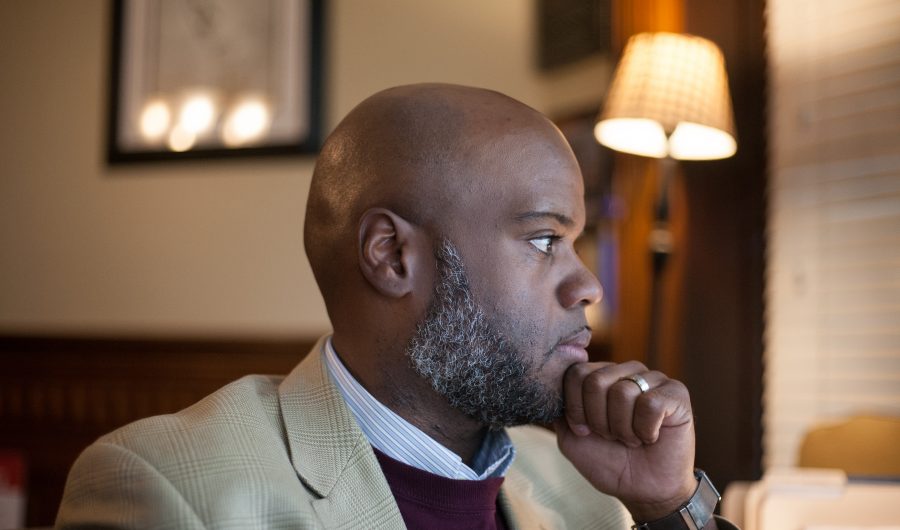“The Souls of Black Folks”(1903), by W. E. B. Du Bois has helped Dean of Equity and Inclusion Christopher Hunt make his experience as a black man feel less isolating.
Having read “The Souls of Black Folks” during his undergraduate career, Dean Hunt said that it showed him “what was potentially ahead of me.”
“W. E. B. DuBois introduced the theory that Blacks in the United States must possess the psychological stamina to activate a ‘double-consciousness’ whereby they understand and navigate the expectations of two cultures similar to how the Black male student…might have done while attending a predominantly white institution,” he wrote in an email.
Hunt said that his connection with the book also stems from the idea of having to learn to stay in touch with his cultures while trying to survive in others.
“In times where you feel like you’re trying to figure out different cultures [while] trying to assimilate and be true to yourself and your culture. [And also] try to find your people and…try to find a way to reconcile that to the larger society,” he said.
“The Souls of Black Folks” has helped Hunt follow his own path, but it has also helped him explain to other students that though their experience in college may not be the same as his, they can relate to it in certain ways.
Another piece of art that Hunt connects to is Lorraine Hansberry’s play “A Raisin in the Sun.”
“A Raisin in the Sun,” is a play that made its debut on Broadway in 1959. It is about “the hopes and aspirations of a struggling, working-class family living on the South Side of Chicago connected profoundly with the psyche of black America,” according to Goodreads.
Hunt received his undergrad degree from West Chester University as a theater major. He said that receiving that degree helped him directing wise by becoming a leader and having guidance for his students.
Hunt is currently working on his dissertation under the title, “When Millennials Meet Baby Boomers: A Collective Historical Case Study on the Experiences of Black Male Graduates.”
“It examines the experiences of Black male students, who graduated during the late 1960’s to early 1980’s, compared to the Millennial generation, who graduated from 2002-2016,” he said in an email.




















































































































